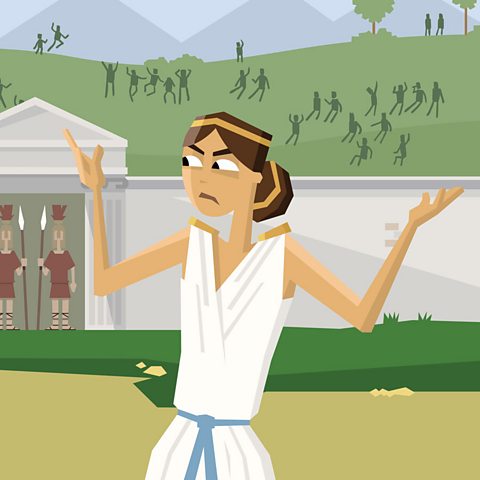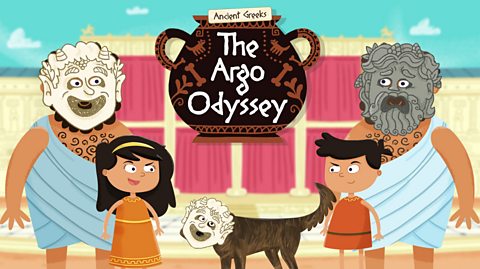What was Greek culture like?
The Greeks pretty much invented the theatre. Thousands of people packed the hillside arena of ancient Athens to watch plays by famous writers like Sophocles, Euripides and Aeschylus.
The Greeks also celebrated the arts with big festivals. There was always music, dancing and feasting in honour of their gods.
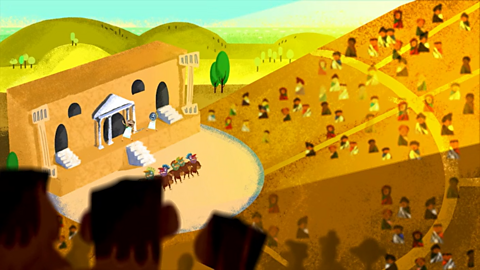
The Greeks' trademark red and black pottery was very fashionable, and it was bought and sold all over the Mediterranean and even parts of Asia.
They were great builders too. The Greeks built grand temples to their gods and superb sculptures of brave heroes.
Architecture and sculpture

The Greeks believed that the secret to making a great building was maths. They carefully designed and measured their buildings, making sure they got all their angles, shapes and sizes right.
Their temples were held up with stone columns and sometimes decorated with stone carvings of famous battles from Greek myths.
The Greeks were really good at making statues too. Sculptors carved lifelike marble statues and decorated them with brightly-coloured paints.
To make them even more spectacular, they added some gold, bronze and ivory jewellery - this would glint and sparkle in the sunlight.

What did ancient Greek pottery look like?
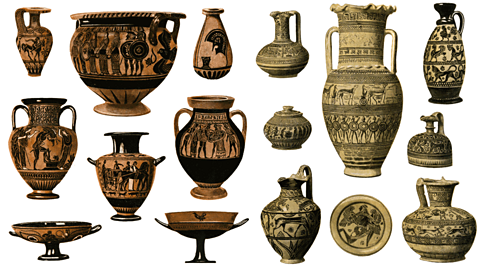
Watch: Ancient Greek theatre
Find out about the topsy-turvy world of the ancient Greek theatre.
The Greeks loved theatre. They brought incredible stories to life with drama, music and dance. So, in ancient Greece, theatres were everywhere.
Every town had a big bowl-shaped arena, usually on a hillside, where thousands would flock to sit on hard stone seats and watch the latest play.
The most successful Athenian playwright was Sophocles, who won so many Greek theatre competitions that he became a big celebrity.
There were three types of plays – comedies, tragedies (which were sad, serious plays), and satyrs (a rude kind of play involving naughty half-men, half-goat characters).
Audiences could make a play a success by cheering and stamping their feet or a miserable failure by throwing food at the performers.
But if the audience were getting too rowdy, the theatre staff had big sticks to keep them quiet.
Actors in ancient Greece were all men… apart from that one… oh no, that’s a man too.
Actors changed the way they looked by wearing masks, wigs and padded costumes.
The chorus, standing below the stage, told the audience what was going on in the story. Lots of the time they delivered their lines in beautiful song and dance.
Their costumes could be even stranger than the actors with animal skins and bird heads!
So next time you see a play, a film or are even just sitting at home watching TV, remember that it all started with the Greeks and their masks.
Just don’t try and throw your dinner at the telly!
What happened at Greek festivals?

The Greeks were always putting on big parties for their gods.
Athens was the place to go in ancient Greece for culture. Every four years, Athens held the Panathenaic Games.
Thousands of people paraded through the city to worship the god Athena. There were competitions for athletics, poetry reading and music. The Games ended with an enormous all-night banquet.
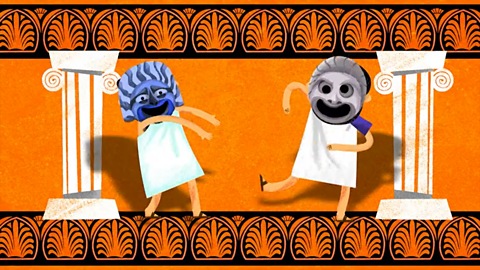
- Athens was the place to go for plays too. The city put on a drama festival called the Dionysia in honour of the god Dionysus. He was the god of the theatre and wine.

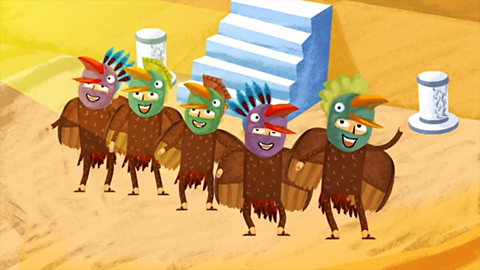
Judges gave prizes for their favourite tragedy and comedy performances.
The Pythian Games were held in Delphi for the god Apollo. They were a bit like the Olympic Games, but there were competitions for music, painting, acting and dancing, as well as athletics.
Activities
Activity: Quiz – Ancient Greek culture
Game: The Argo Odyssey
Argo the dog is missing! But who is that furry, four-legged actor in the mask?
Play the game to solve a stylish pottery puzzle, then watch a drama performance.
SAT’s preparation resources. activitySAT’s preparation resources
Get ready for the SATs papers with videos, activities, quizzes and games to refresh your knowledge and practise your skills.

More on Ancient Greece
Find out more by working through a topic
- count6 of 6
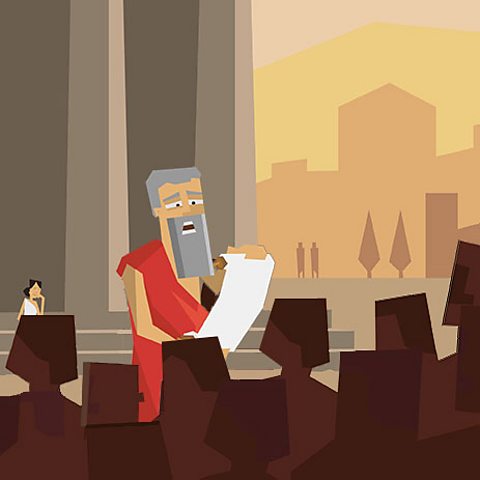
- count1 of 6
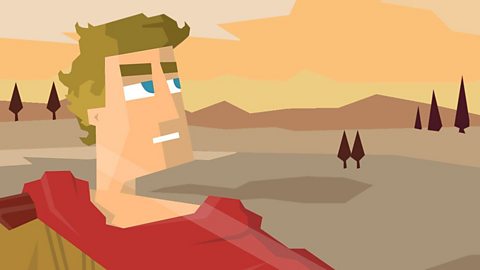
- count2 of 6
